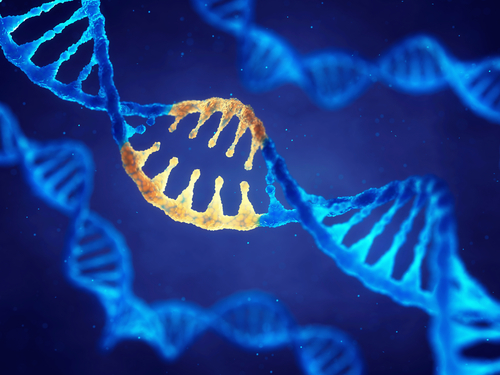Mayo Clinic discovers six gene mutations linked to pancreatic cancer, calls for expanded testing
Mayo Clinic Jun 21, 2018
The study has found six gene mutations that may be passed down in families, increasing a person’s risk for pancreatic cancer, even with no family history, and researchers are now recommending genetic testing for all pancreatic cancer patients as the new standard of care.

The research was published in the June 19 edition of the JAMA.
Currently, health-care providers offer genetic testing only to pancreatic cancer patients with a family history of the disease. That accounts for just 10% of all pancreatic cancer cases. Research suggests these testing guidelines miss genetic predisposition to cancer in up to 90% of pancreatic cancer patients with no family history. This finding is significant in part because the data suggest that family members should have DNA testing to understand their risk for cancer.
“This study provides the most comprehensive data to date supporting genetic testing for all pancreatic cancer patients,” say Fergus Couch, PhD, a senior author on the study. “This is the first study to provide estimates on the magnitude of cancer risk associated with each gene. It indicates that family history alone cannot predict who has these mutations.”
“Multiple genes can each increase risk of pancreatic cancer. But if genetic testing is performed only on patients with a family history of pancreatic cancer, then a small number of patients will be helped,” says Gloria Petersen, PhD, a Mayo Clinic researcher and senior author.
Genetic testing was conducted on 3,030 pancreatic patients who were seen at Mayo Clinic between 2000 and 2016. The test results of 21 cancer genes were compared to similar results from more than 123,000 patients without pancreatic cancer. The study found six genes clearly linked to an increased risk of pancreatic cancer: BRCA1, BRCA2, CDKN2A, TP53, MLH1, and ATM. These genetic mutations were identified in 5.5% of all pancreatic cancer patients, including 5.2% of cancer patients without a family history of pancreatic cancer.
Patients who have these genetic mutations are at a substantially higher risk for pancreatic cancer, but that does not definitively mean they will develop the disease.
“The conclusion of this study is that we now have better molecular insights into the underlying genetic causes of pancreatic cancer," says Raed Samara, PhD, a study author from QIAGEN Sciences Inc. "The comprehensive data generated from this cohort required the specific and uniform sequencing, and deep analyses of a focused set of cancer predisposition genes. The risks of developing pancreatic cancer due to mutations in these genes can be more accurately estimated than ever before because of this seminal study.” QIAGEN Sciences Inc designed the DNA testing for this research.
-
Exclusive Write-ups & Webinars by KOLs
-
Daily Quiz by specialty
-
Paid Market Research Surveys
-
Case discussions, News & Journals' summaries